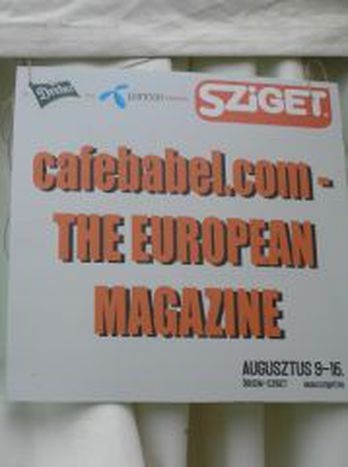
Let's go to the Sziget!
Published on
76 hectares, 385 thousand spectators, 750 concerts, 10.2 tons of waste produced during a week at the heart of Budapest. Since its debut in 1993 the Sziget Festival has grown a reference point. It is not only a music festival anymore but also a wealthy cultural programme.
Alike previous years, visitors of the festival could enjoy not only the high variety of concert-supply and the cultural cavalcade; but yould meet representatives of the civil society as well. The area separated for almost 120 civil organisations has become one of the most colourful fields of the festival during the past years. In 2006 Café Babel got the chance for the first time to bring new colour into the programme of the Civil Village.
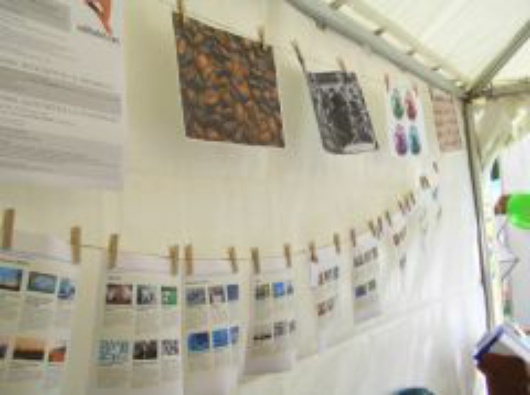 This year almost one third of the spectators were foreigners: most of them were French, German, Austrian, and Dutch. Tough the six thousand visitors of the Civil Village were still mainly Hungarian, more and more organisations tried to offer programmes for the visitors coming from abroad. Café Babel was represented by seven volunteers of the Budapest team, who installed a 25 square meters large tent where the visitors could get acquainted with headings of the magazine and could play with a scrabble laying down on mats and pillows.
This year almost one third of the spectators were foreigners: most of them were French, German, Austrian, and Dutch. Tough the six thousand visitors of the Civil Village were still mainly Hungarian, more and more organisations tried to offer programmes for the visitors coming from abroad. Café Babel was represented by seven volunteers of the Budapest team, who installed a 25 square meters large tent where the visitors could get acquainted with headings of the magazine and could play with a scrabble laying down on mats and pillows.
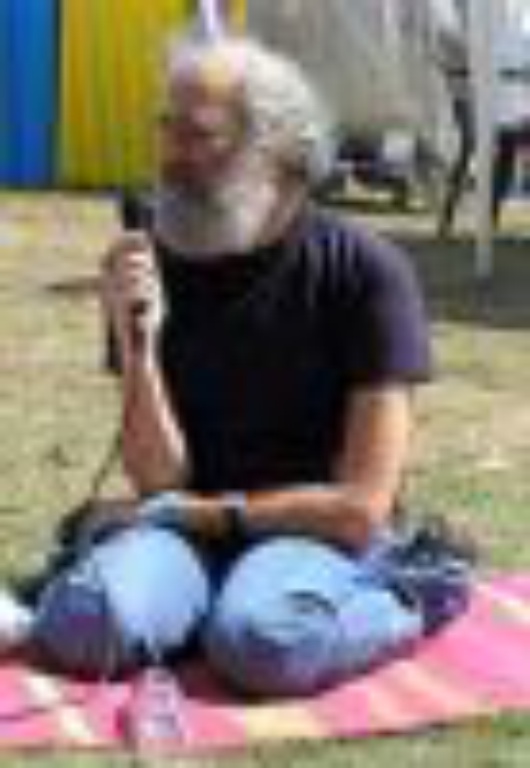 Following opening the tent of Café Babel an ardent going and coming begun around the Civil Playground, where László Mérő mathematician was awaited for an accommodating brunch. The senior lecturer of Psychological Department of University of Sciences of Budapest became internationally known particularly by his researches on game theory and artificial intelligence. In a few minutes a smaller audience gathered together around the professor. Looking for some intellectual filling up they stood silent and intent while sipping a hot coffee and nibbling sweet cakes.
Following opening the tent of Café Babel an ardent going and coming begun around the Civil Playground, where László Mérő mathematician was awaited for an accommodating brunch. The senior lecturer of Psychological Department of University of Sciences of Budapest became internationally known particularly by his researches on game theory and artificial intelligence. In a few minutes a smaller audience gathered together around the professor. Looking for some intellectual filling up they stood silent and intent while sipping a hot coffee and nibbling sweet cakes.
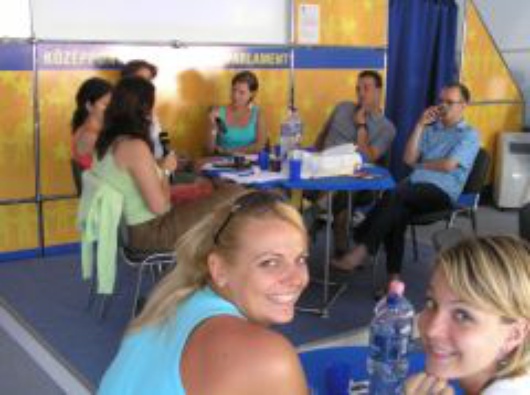 Afterwards, at around 5 o’clock in the afternoon a debate began with the title “Speak your mind!” where representatives of different civil organisations could meet each other. The young volunteers discussed the role of young people in shaping the public opinion and talked about the possibilities and tools that they have to reach wide range of public. Guests of the debate were: Nikoletta Incze Foundation for European Values); Sára Vári (Young for Development Association); Tibor Ibránszki (Pillár Foundation); Dániel Fehér (European Civil Initiation); Márton Vay (Védegylet Association).
Afterwards, at around 5 o’clock in the afternoon a debate began with the title “Speak your mind!” where representatives of different civil organisations could meet each other. The young volunteers discussed the role of young people in shaping the public opinion and talked about the possibilities and tools that they have to reach wide range of public. Guests of the debate were: Nikoletta Incze Foundation for European Values); Sára Vári (Young for Development Association); Tibor Ibránszki (Pillár Foundation); Dániel Fehér (European Civil Initiation); Márton Vay (Védegylet Association).
Saturday morning started with a brunch, as usual. The guest of the agreeable chat was György Pálfi, a talented Hungarian director, who has already scored full marks in Cannes with his genius movies: Hukkle and Taxidermia. The friendly talk attracted a large audience again who could at the end of the joint breakfast, even ask the moviemaker. Pálfi imparted the crowd to secrets of filmmaking and his plans for the future.
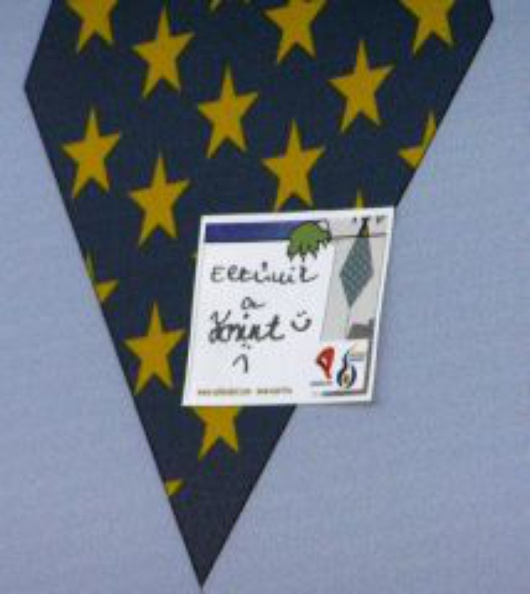 During the afternoon a transparent installed close to the road passing by the Civil Village called attention of the visitors of the festival. The title of the panel was: “Who fears Europe?” on which members of the Budapest team collected concerns and opinions about the European Union. Number of comments multiplied quickly. Finally it was a real challenge to know our way among the slip of papers hung on the table: number of languages and different hand writings.
During the afternoon a transparent installed close to the road passing by the Civil Village called attention of the visitors of the festival. The title of the panel was: “Who fears Europe?” on which members of the Budapest team collected concerns and opinions about the European Union. Number of comments multiplied quickly. Finally it was a real challenge to know our way among the slip of papers hung on the table: number of languages and different hand writings.
Besides Hungarians, Austrians, British, Dutch, French, Germans, Swedish, Romanians, Turkish, and even Australians and Canadians placed a slip on the board. Surprisingly, mainly the foreign visitors were interested in the action, while Hungarians seemed to be a bit timid. Some of the people standing by the panel have already heard about Café Babel, and many of them belong to the readers of the magazine.
Fortunately, struggling with the slips of paper was not unreturned: the volunteers distributed more hundreds of dictionaries among people passing by. The Budapest team complied a pocket-dictionary especially for the festival in order to ease communication between the visitors coming from abroad and the Hungarians. Fifteen useful expressions were collected together on the seven official languages of the magazine, like: „Hi! How are you?” or “How much is the beer here?”. The pocket-dictionary became popular with the visitors shortly, mainly among the foreigners.
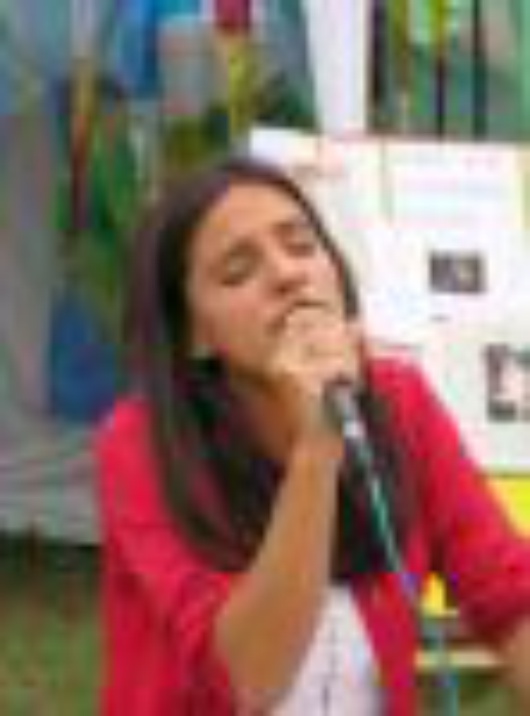 Sunday started a bit gloomy, particularly because it looked like rain and the ground was still wet because of previous night’s rain that almost upset our plan of making a picnic. It seemed that we have to cancel our usual chat, when Palya Bea the beautiful and charming Hungarian singer arrived with a face beaming with happiness to the Civil Playground. The internationally known folklore and world music singer woke up spectators camping close to the Civil Village with singing. Many of them immediately took his pillow and joined the audience. During the one and a half hours long conversation Bea talked about her childhood, her attachment to France and about her future plans. Then, she sang again and all the people around her wished she would never stop.
Sunday started a bit gloomy, particularly because it looked like rain and the ground was still wet because of previous night’s rain that almost upset our plan of making a picnic. It seemed that we have to cancel our usual chat, when Palya Bea the beautiful and charming Hungarian singer arrived with a face beaming with happiness to the Civil Playground. The internationally known folklore and world music singer woke up spectators camping close to the Civil Village with singing. Many of them immediately took his pillow and joined the audience. During the one and a half hours long conversation Bea talked about her childhood, her attachment to France and about her future plans. Then, she sang again and all the people around her wished she would never stop.
Meanwhile almost two hundreds comments gathered together on the panel during the 3 days; bit by bit there was no place left on the board. Opinions and fears were discussed among experts during Saturday afternoon in course of a debate “Quo vadis Europe?”. Guests of the event were: András Bozóki, former cultural minister; Gabriella Lantos, expert of development policy and Zoltán Pogátsa economist researcher. Questions such as competitiveness of the European Union, the sustainable development, the democratic deficit and bureaucracy of Brussels were mentioned in course of the discussion. The audience took the floor quite shortly and asked the guests about a wide range of questions from new challenges of the common foreign and security policy, through national identity of new member states and the allocation of EU-funds.
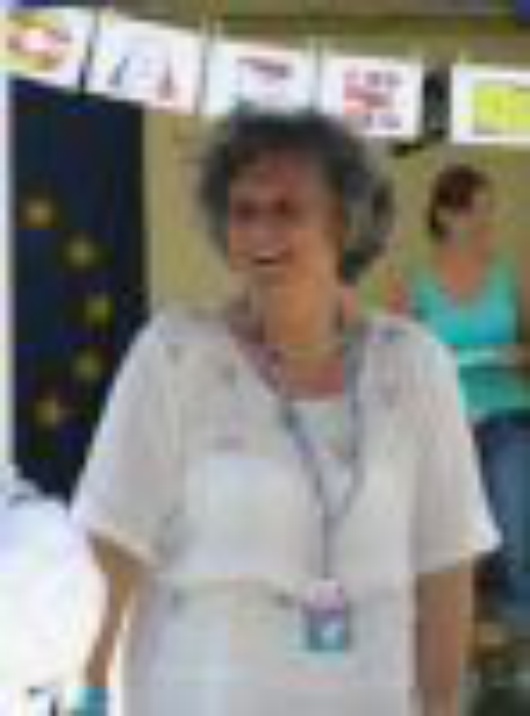 The three-day long presence was a serious showdown for the Budapest team, not only in respect of teambuilding but physically as well. They left a exhausting weekend behind themselves, but their efforts yielded fruit: countless people visited the tent of Café Babel who were informed about the magazine and in a way they were “babelized” as well. They gave out almost 300 pocket-dictionaries to the visitors of the festival, and asked 200 young about their fears concerning the EU. A similar number of people participated the debates and brunches organised in the Civil Village. On Saturday Kinga Göncz, minister for foreign affairs and István Szent-Iványi, member of the European Parliament visited the tent as well.
The three-day long presence was a serious showdown for the Budapest team, not only in respect of teambuilding but physically as well. They left a exhausting weekend behind themselves, but their efforts yielded fruit: countless people visited the tent of Café Babel who were informed about the magazine and in a way they were “babelized” as well. They gave out almost 300 pocket-dictionaries to the visitors of the festival, and asked 200 young about their fears concerning the EU. A similar number of people participated the debates and brunches organised in the Civil Village. On Saturday Kinga Göncz, minister for foreign affairs and István Szent-Iványi, member of the European Parliament visited the tent as well.
During the weekend a television and a radio report were recorded with the representatives of the Budapest team that finally spent Sunday evening with celebration.



